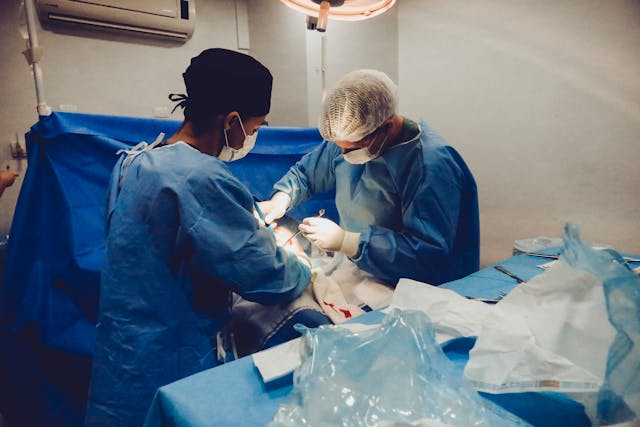
Hernias can cause discomfort and disrupt daily activities, so addressing them through a repair procedure helps prevent further complications. Understanding what to expect at each stage can help if you’re preparing for hernia repair surgery. This knowledge can alleviate uncertainty and make the process less stressful. From pre-surgery preparations to post-operative recovery tips, being informed can help you have a smoother experience and a quicker return to your normal routine.
Understanding Hernias and Common Types
A hernia happens when an organ or tissue pushes through a weak spot in the surrounding muscle or tissue, often causing discomfort or visible changes. Common types include inguinal, umbilical, and hiatal hernias, each with specific symptoms and causes. It might be a hernia if you notice persistent pain, swelling, or a bulge that worsens with lifting or coughing. Talk to your doctor about hernia surgery. Early treatment can prevent complications.
Preparing for Hernia Surgery
Your healthcare provider will guide you on how to prepare for surgery. Following these preparation steps helps your surgery go as smoothly as possible:
- Medical Evaluation: To confirm the diagnosis, expect a physical exam and possibly imaging tests, such as an ultrasound.
- Medication Management: Discuss your medications; some may need to be paused before surgery.
- Fasting Instructions: You’ll likely be asked to avoid eating or drinking for several hours before the procedure.
What Happens During the Hernia Repair Surgery
Hernia surgery is typically performed using one of two methods: open surgery or minimally invasive (laparoscopic) surgery. Open surgery involves making a larger incision to access and repair the hernia site. Laparoscopic surgery uses smaller incisions and specialized tools, including a camera. The laparoscopic approach often allows for quicker recovery. The choice of procedure depends on factors such as the hernia’s type, size, and location.
Recovery Process and Post-Operative Care
After surgery, you’ll need to focus on recovery to maximize the procedure’s benefits. Most patients return to normal activities within a few weeks, but your timeline will depend on the complexity of the surgery and how your body responds. Key points include:
- Rest and Mobility: Avoid strenuous activities while focusing on gentle movements to aid healing.
- Wound Care: Follow your provider’s instructions for cleaning and dressing the incision site.
- Pain Management: Prescribed medications can help manage any discomfort. For minor pain, over-the-counter options may also be recommended.
Tips for a Successful Recovery
A smooth recovery requires care and attention. To support your healing process, stick to a light and balanced diet initially, as straining can hinder recovery. Avoid lifting heavy objects to prevent stress on the repaired area, and attend follow-up appointments so your provider can track your progress and address any concerns. Following these recommendations and maintaining close communication with your healthcare provider can speed up your recovery and reduce potential risks.
Also Read: Repairing a Herniated Disc With Disc Surgery
Achieving Relief Through Hernia Repair
Hernia repair surgery is an effective solution for managing the discomfort and limitations caused by hernias. Understanding the process, preparing wisely, and taking appropriate post-operative measures can improve your overall experience and recovery. Take the first step toward relief by consulting with a qualified surgeon to discuss your options and create a personalized treatment plan.








